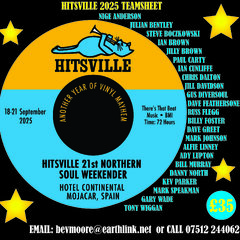- Replies 54
- Views 5.3k
- Created
- Last Reply
Most active in this topic
-
Robbk 11 posts
-
Agentsmith 9 posts
-
David Meikle 6 posts
-
Wheelsville1 6 posts
Most Popular Posts
-
Rather than trying to distill the long essay down to some basic points, I've decided to give you a specific example of the type of explanation of one of the possible participation scenarios I might ha
-
Mark Windle researched this group and 45 for his book. The info he gleaned from first hand sources puts Willie in the frame. In a separate strand, when I asked MT about the 45 I was very surprised t
-
Mike gave me a list of records he played on. That one is not on the list. Dave Moore got it from Mike himself. Robb K has his doubts. However, the little experience I have in interviewing people





Dispute here: afficianados of Detroit, its in your court. Its been said Willie Mitchell plays this sax break. He was definitely in Detroit at the time. The belief is he plays trumpet on it...its said he produced and arranged the session at GW....does anyone believe that to be correct as well?
This question though, revolves around WHO plays sax.
To me, without any shred of a doubt, its Terry's signature, instantly recognizable the world over....tell me im wrong?